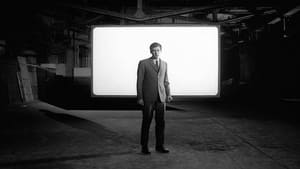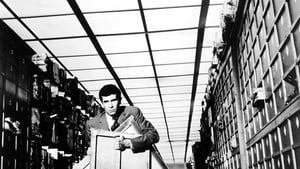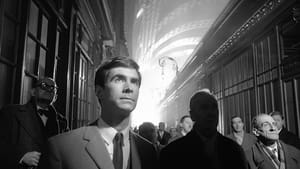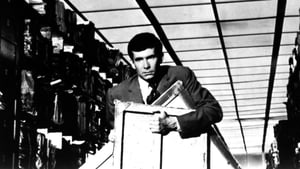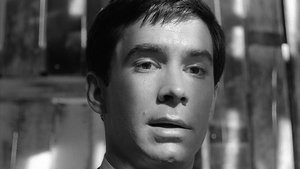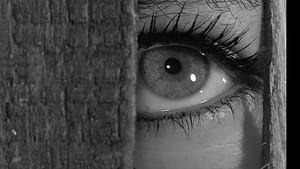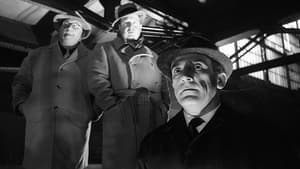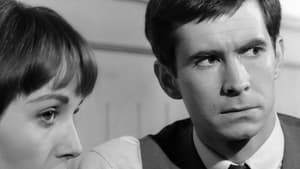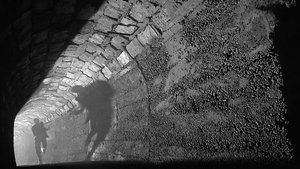Video Sources 0 Views
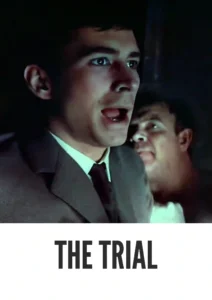
Synopsis

Step into the unsettling and surreal world of Franz Kafka with Orson Welles’ The Trial, a chilling drama from 1962, now beautifully colorized to amplify its nightmarish atmosphere. Starring Anthony Perkins as Josef K. and Orson Welles as the Advocate, this film plunges viewers into a labyrinthine tale of injustice, paranoia, and existential dread. Perfect for cinephiles and fans of thought-provoking cinema, this HD download brings a classic of paranoia to life with a fresh, vibrant perspective.
The Trial follows the Kafkaesque nightmare of Josef K. (Anthony Perkins), a seemingly ordinary office worker who is abruptly arrested one morning for an unknown crime. He is given no explanation, no formal charges, and is told to continue with his life as usual while the mysterious proceedings against him unfold.
As Josef K. attempts to navigate the bizarre and convoluted legal system, he encounters a series of strange characters, each more enigmatic and unhelpful than the last. He seeks guidance from the Advocate (Orson Welles), a powerful but elusive lawyer who promises assistance but offers only empty platitudes. He becomes entangled with the alluring but dangerous court secretary, Hastler (Romy Schneider) and is drawn into a world of suspicion and uncertainty.
As the trial progresses, Josef K. becomes increasingly consumed by his plight, struggling to maintain his sanity as he confronts the absurdity of his situation. The film is a haunting exploration of powerlessness, alienation, and the dehumanizing effects of bureaucracy, leaving audiences questioning the nature of justice and the individual’s place in an incomprehensible world.
The film features a stellar cast of actors who bring this surreal story to life:
-
Anthony Perkins as Josef K.
-
Orson Welles as The Advocate
-
Romy Schneider as Hastler
-
Jeanne Moreau as Miss Burstner
-
Elsa Martinelli as Hilda
-
Akim Tamiroff as Bloch
The Trial falls into the genre of drama, with strong elements of psychological thriller and social commentary. Its dark and surreal atmosphere is characteristic of Kafka’s works, making it a unique and unsettling cinematic experience.
Released in 1962, The Trial represents Orson Welles’ ambitious attempt to adapt Franz Kafka’s novel for the screen. The film reflects the anxieties of the Cold War era, exploring themes of totalitarianism, surveillance, and the erosion of individual freedoms. Welles’ distinctive directorial style, characterized by its innovative camera work, dramatic lighting, and unconventional editing, enhances the film’s nightmarish quality and reinforces its themes of paranoia and alienation.
This colorized version of The Trial has been meticulously restored using modern digital techniques, enhancing the visual impact while preserving the film’s original atmosphere of dread and uncertainty. The colorization process involved a careful analysis of the grayscale tones of the original black and white footage, assigning appropriate colors to each scene to enhance the emotional impact and visual storytelling. This painstaking process breathes new life into the characters and settings, making the story even more engaging for modern audiences. While some may debate the merits of colorizing classic films, it introduces these films to a broader audience, ensuring their legacy for future generations.
-
: Orson Welles
-
: Orson Welles, based on the novel by Franz Kafka
-
: Edmond Richard
-
: Yvonne Martin
-
: Paris Europa Production, Hispamer Films S.A., FI.C.IT.
-
: Astor Pictures
-
: 119 minutes
-
: MP4
-
: HD (1080p)
-
: Compatible with most devices, including smartphones, tablets, computers, and smart TVs.
The Trial (1962) is considered a bold and visually stunning adaptation of Kafka’s novel, praised for its atmospheric cinematography, powerful performances, and thought-provoking themes. It remains a controversial but highly regarded film, celebrated for its artistic vision and its unflinching exploration of the dark side of human existence.
-
: What is The Trial about?
-
A: The Trial is about a man who is arrested for an unknown crime and forced to navigate a bizarre and oppressive legal system.
-
-
: Is The Trial (1962) a faithful adaptation of Kafka’s novel?
-
A: While Orson Welles took some liberties with the source material, The Trial captures the spirit and themes of Kafka’s novel.
-
-
: Is this version of The Trial colorized?
-
A: Yes, this version has been professionally colorized to enhance the viewing experience.
-
-
: What makes The Trial interesting for classic film fans?
-
A: The Trial is a visually stunning and thought-provoking film that showcases Orson Welles’ distinctive directorial style and tackles important social and philosophical themes.
-
-
: What is the download format?
-
A: The download format is MP4, which is compatible with most devices.
-
-
: What resolution is the download?
-
A: The resolution is HD (1080p), providing a high-quality viewing experience.
-
Watch The Trial Today!
